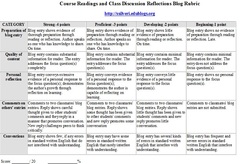Today, I would like for you to read and respond to the article, "In the Minds of Others" by Keith Oatley. You should read and annotate the print article that I give you, but I will also include a link here. This article further develops the ideas from Independent Reading Blog #2 and will be of use later when we finish our Independent Reading Unit.
Adesola Bamigbaiye
1/27/2019 07:14:54 pm
In Keith Oatley’s article In the Minds of Others, he argues that we need to read more fiction because reading fiction has been shown to boost the efficiency of the social interaction of children and adults, making them feel empathy easier and become better at reading facial features and body language.
Liv Lam
1/27/2019 08:26:30 pm
In the article, “In the Minds of Others”, the author, Keith Oatley, discusses a number of experiments that test the influence of fiction or nonfiction pieces of literature on a reader’s behavior, mindset, and experiences. Oatley research that claims that the reading of fiction literature has the ability to build one’s empathy as we connect with the fictitious characters; this is due to the idea that when we read, we create social simulations in our mind that can help us in reality. The improvement of empathy from reading fiction also plays into hand with the reader’s level of openness, understanding of their own emotions, and alterations in one’s personality. Oatley argues that reading, fiction literature specifically, frequently can significantly improve someone’s social skills and understanding of oneself. Oatley supports his argument through his description of the number of studies and experiments he and his colleagues at the University of Toronto have produced, explaining the significance of these studies in relation to his argument, and appealing to ethos.
Alyssa John
1/27/2019 09:48:05 pm
Fiction, as a genre of novel, has become increasingly important and more appreciated as a tool to help people develop. In this piece Keith Oatley tries to explain that “just as computer simulations have helped us understand perception, learning, and thinking, stories are simulations of a kind that can help readers understand not just the characters in books but human character in general.” There are many stereotypes about those who read many books such as that they are “loners” or “lack social skills”. It seems like Keith Oatley wanted to know the accuracy of all these assumptions about “bookworms” and “fiction readers” and tested to see if the assumptions had any truth to them. The main point of the article, ”In the minds of Others”, by Oatley is that fiction can help one better understand humans and have increased social skills. This idea is elaborated on in many parts of the article that highlights different things that would lead someone to have good social skills such as having a well-developed theory of mind, having strong empathy, and having a good sense of self. Oakley uses a psychological standpoint to prove his hypothesis’.
Julia Andrews
1/27/2019 10:36:41 pm
In Keith Oatley’s article, In the Minds of Others, he displays the impacts of nonfiction and fiction literature on those interpreting it. The author introduces his prevalent argument that those who read fiction tend to have stronger means of social communication and understandings. Oatley also suggests that reading things of this nature can improve the ability of one to empathize with and interpret another being’s body language and expressions.
Ivor Valdivia
1/27/2019 11:28:00 pm
Millions of people around the world consume fiction through media on a daily basis. Movies and TV shows have always consistently found a place in contemporary and pop culture. But most people's reasoning would for consuming fiction would be as entertainment or engaging in an interesting narrative. A lot of people fail to understand what someone could gain from any form of stories of fiction. Keith Oatley shows us his ability to understand fiction more than most people in his article “In the Minds of Others”, where he highlights many different skills one could gain from fiction that can be applied to our everyday life. Whether it’s to Build Empathy and Understand Points of view better, Oatley proves how Fiction can help us understand Humans better. As we understand them better, we can learn to perform better in social situations we otherwise wouldn’t. At the end of the day, Fiction can help us better develop our personality and become better human beings than we otherwise would be without fiction.
Shameer khan
1/27/2019 11:28:20 pm
Since the beginning of our civilization, stories became a part of our social lives. As time went ahead and our societies started to advance towards progression, the stories saw a huge advancement in them and became more and more advanced, along the humans. During this advancement the stories got distributed into genres and one of those genre was “fiction”. If we look at our modern history “fiction” saw a huge popularity from the time of roman empire to islamic golden age and europe in middle ages. Shakespeare is regarded as “The king of Fiction” by many people in the modern era because of his style of using his imagination(fiction) and comparing it with the reality.
Jemmea Jean-Gilles
1/27/2019 11:44:09 pm
In Keith Oatley's article “In the Mind of Others, he addresses the impact of fiction on the readers minds. Oatley appeals to logos by using multiple studies to support his argument that reading has a positive impact on the social skills of the readers. The author notes that by immersing oneself into a fictional world, they are able to increase their empathy and decrease egocentrism.
alexander santana
1/28/2019 12:00:48 am
In the article “In the Minds of Others” by Oatley Keith, explains the benefits of reading fiction books and stories. He argues that fiction books improve social ties and change personality.
Diana Lemos
1/28/2019 12:07:42 am
In the article, “In the Minds of Others”, the author, Keith Oatley argues that reading fictional stories is necessary because they help strengthen people’s social ties and change their personalities in a positive manner. Many people might claim that reading is just a way for people to escape the real world and avoid human interaction, but according to the author, reading stories actually prepare readers for social interactions such as “camaraderie, collaboration, [and] even love”. In addition, reading fiction helps people empathize with others and take another person’s point of view into perspective so that they could better understand others.
Olivia Merza
1/28/2019 10:43:44 pm
In the article, In The Minds of Others, Keith Oakley describes his research on the relationship between reading fictional novels affects one’s social abilities. Through description of extensive research and a deep analysis of results, Oatley comes to the conclusion that reading fictional novels helps readers develop empathy and social skills, including perception of others and personality changes. Keith Oatley, also, backs up his research with research from other sources that are conducting the same exact research to help prove the validity of the research results. Comments are closed.
|
Blog Post Rubric
Archives
February 2023
Categories
All
|

 RSS Feed
RSS Feed